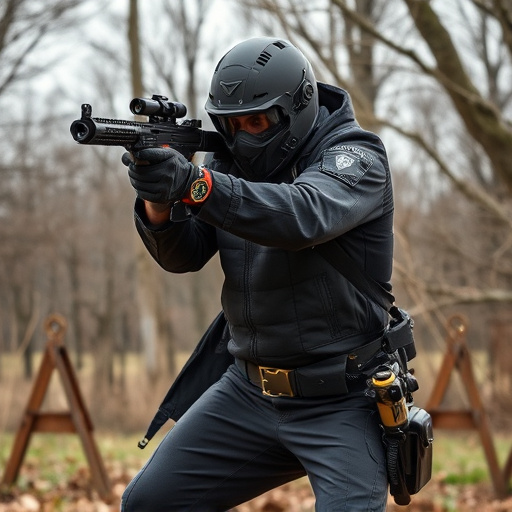Obtaining non-lethal weapon certification is crucial for personal safety, especially with best stun guns for car defense. This equips individuals to operate devices responsibly, understand legal frameworks, and deploy them effectively in dangerous situations while minimizing harm. Stun guns, like tactical models with high voltage and LED light, are ideal for car protection. Training programs simulate real-life scenarios, enhancing safety and de-escalation skills. Staying informed about local self-defense laws is vital. Responsible handling, including secure storage and regular practice, ensures stun guns' effectiveness as a last resort in car defense.
“Uncover the power of non-lethal weapon training certification and its role in enhancing personal safety. This comprehensive guide explores the intricate world of self-defense tools, focusing on popular stun guns suitable for car defense. From understanding certification requirements to navigating legalities, we delve into effective training programs preparing you for real-life scenarios. Discover the benefits and limitations of non-lethal weapons, including insights on the best stun guns designed for maximum impact in confined spaces. Arm yourself with knowledge and make informed choices.”
- Understanding Non-Lethal Weapon Certification Requirements
- Popular Stun Guns for Personal Defense in Cars
- Training Programs: Preparing for Real-Life Scenarios
- Legal Aspects: Navigating Regulations for Self-Defense
- Safety Measures: Using Stun Guns Responsibly
- Benefits and Limitations of Non-Lethal Weapons
Understanding Non-Lethal Weapon Certification Requirements
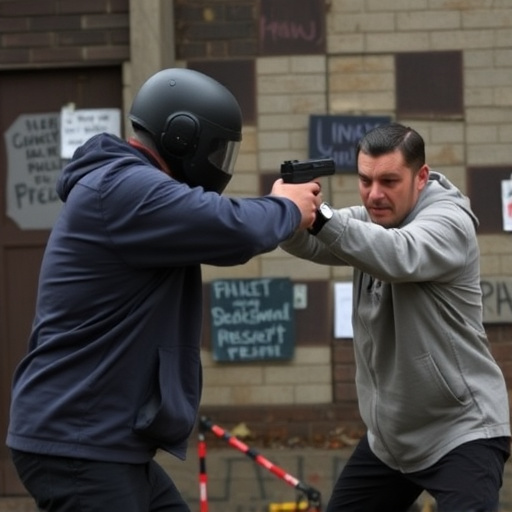
Obtaining a non-lethal weapon certification is a crucial step for individuals seeking to empower themselves with tools for personal safety, especially when considering the best stun guns for car defense. These certifications ensure that users understand and can operate these devices responsibly and effectively. The process typically involves a series of training modules covering various aspects, from the legal framework surrounding non-lethal force to hands-on practice sessions.
Training programs often include learning about different types of stun guns, their range, and effectiveness. Students will also acquire skills in proper handling, deployment techniques, and de-escalation strategies. Additionally, understanding when and how to use these tools is vital. The certification process aims to equip individuals with the knowledge and confidence needed to make sound decisions in potentially dangerous situations while emphasizing the importance of minimizing harm.
Popular Stun Guns for Personal Defense in Cars
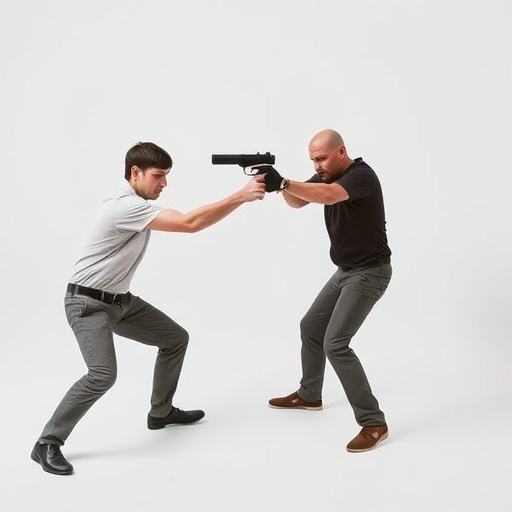
When it comes to personal defense inside or outside your vehicle, having a reliable stun gun is an excellent non-lethal option. Stun guns are designed to temporarily incapacitate an assailant, giving you crucial time to escape and seek help. For car owners looking for effective self-defense tools, several high-quality stun guns stand out as the best options in the market.
One popular choice is the tactical stun gun with a high voltage output, offering both a powerful electric shock and bright LED light. These devices are compact and easily fit into a car’s console or glove compartment. Another favorite among users is the stun gun with a built-in GPS tracker, ensuring you can locate your device if it’s ever lost or stolen. Some models also feature adjustable sting intensity levels, allowing users to customize the level of shock according to their comfort and situation.
Training Programs: Preparing for Real-Life Scenarios
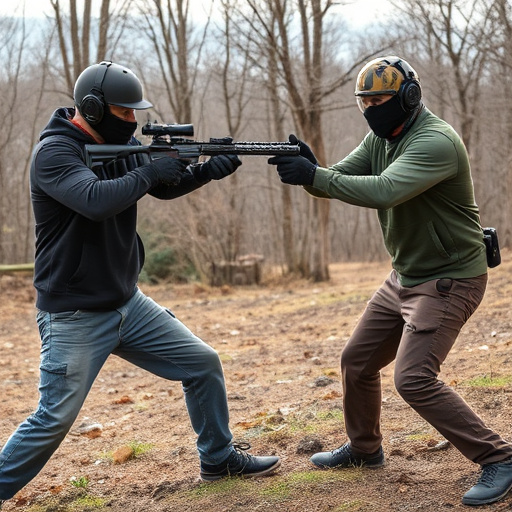
In the realm of personal safety, especially within law enforcement and security sectors, preparing for real-life scenarios is paramount. Training programs designed around non-lethal weapon certification go beyond mere theoretical knowledge; they simulate diverse situations that require immediate and effective responses. These scenarios often include self-defense in various settings, such as car defenses, where individuals must protect themselves in close quarters with limited mobility. The best stun guns for car defense, for instance, aren’t just about delivering a shock; they’re tools that empower users to disable assailants without causing permanent harm.
Training facilities utilize advanced technologies and equipment to recreate these scenarios, enabling participants to gain practical experience. They learn to handle non-lethal weapons like stun guns, tasers, and pepper spray under controlled conditions, preparing them for high-stress situations where quick thinking and precise action can make all the difference. Such training not only enhances individual safety but also contributes to a more effective law enforcement approach that prioritizes de-escalation and minimal use of force.
Legal Aspects: Navigating Regulations for Self-Defense
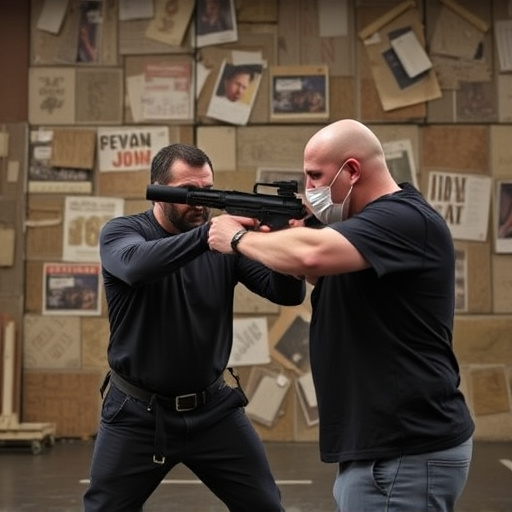
When it comes to self-defense, understanding the legal aspects is as crucial as mastering the use of non-lethal weapons. In many jurisdictions, citizens have the right to protect themselves and their loved ones, but navigating the regulations can be complex. One popular choice for car defense, often recommended by experts for its effectiveness and ease of use, are best stun guns. These devices are designed to incapacitate an assailant without causing permanent harm, aligning with self-defense laws in many regions.
However, it’s essential to stay informed about local statutes. Some areas have specific rules regarding the type, size, and power output of stun guns allowed for personal use. Carrying a certified non-lethal weapon ensures you’re compliant with these regulations, providing peace of mind while offering a layer of protection during potential emergencies.
Safety Measures: Using Stun Guns Responsibly
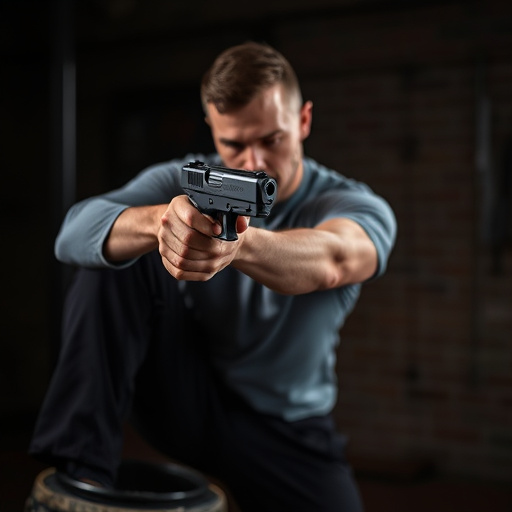
Stun guns, often considered one of the best non-lethal weapons for car defense, require responsible handling and a deep understanding of safety measures to ensure their effectiveness while minimizing risks. Responsible use means knowing the legal boundaries in your region, as well as understanding the physical capabilities and limitations of the device. Users must be trained to activate the stun gun only when necessary, aiming for specific high-tension areas like the throat or sides, which can immobilize an aggressor without causing severe harm.
Proper safety precautions include storing stun guns in secure, childproof locations, keeping them charged and readily accessible, and understanding the difference between a stun and a shock. It’s crucial to regularly practice with your stun gun to build confidence in its deployment, especially in stressful situations. Always follow manufacturer guidelines for maintenance and proper use to ensure the stun gun functions optimally as a last resort defense mechanism when facing dangerous circumstances, particularly while driving or in other self-defense scenarios where lethal force may be avoided.
Benefits and Limitations of Non-Lethal Weapons
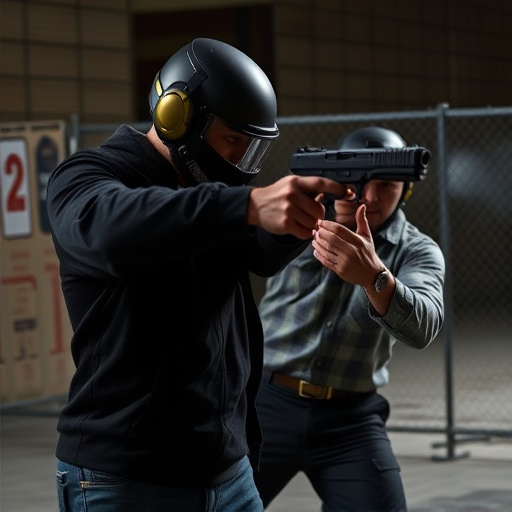
Non-lethal weapons, including stun guns and pepper spray, offer a range of benefits for personal and law enforcement use. One of the primary advantages is their ability to incapacitate or deter threats without causing permanent harm or death. This is particularly valuable in situations where de-escalation and minimal force are desired, such as during domestic disputes or when dealing with mentally unwell individuals. Stun guns, in particular, have gained popularity as a car defense tool due to their compact size and ease of use—a significant step up from traditional self-defense options like knives or batons.
However, these weapons also come with limitations. Their effectiveness can vary based on factors like target size, strength, and physical condition, as well as environmental conditions. For instance, pepper spray may not always be reliable in close quarters or against determined attackers. Additionally, non-lethal force should be employed as a last resort, as it still involves potential harm and could escalate situations if misused or used inappropriately. The best stun guns for car defense must be chosen with these considerations in mind to ensure safety and efficacy.
Obtaining a non-lethal weapon training certification equips individuals with the knowledge and skills necessary to protect themselves in various situations, especially while driving. By understanding the legal implications and safety protocols surrounding stun guns, certified users can make informed decisions and employ these devices responsibly as effective tools for personal defense. When combined with the right training and awareness, non-lethal weapons like top-rated stun guns for car defense can offer a robust layer of protection without escalating violence.
